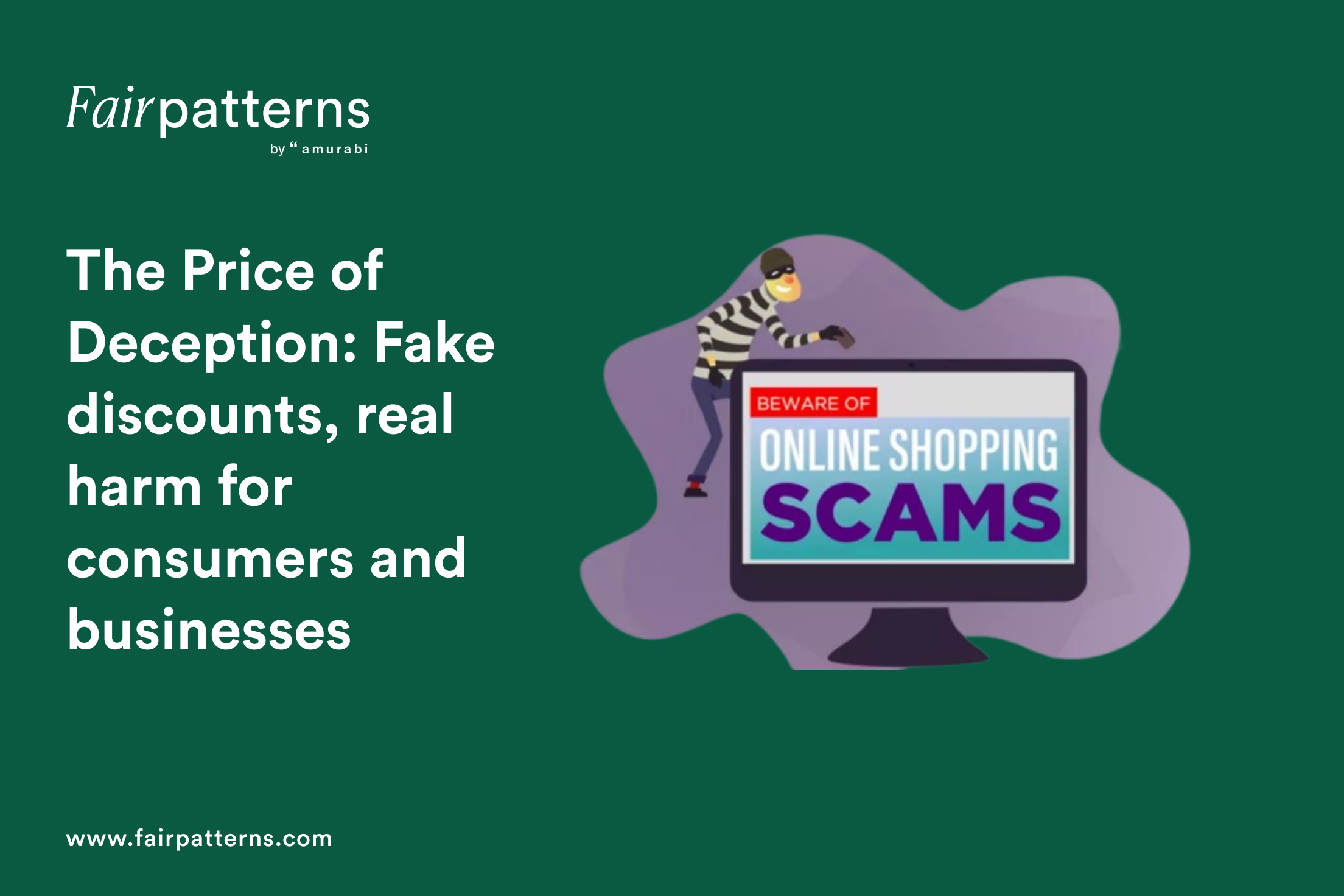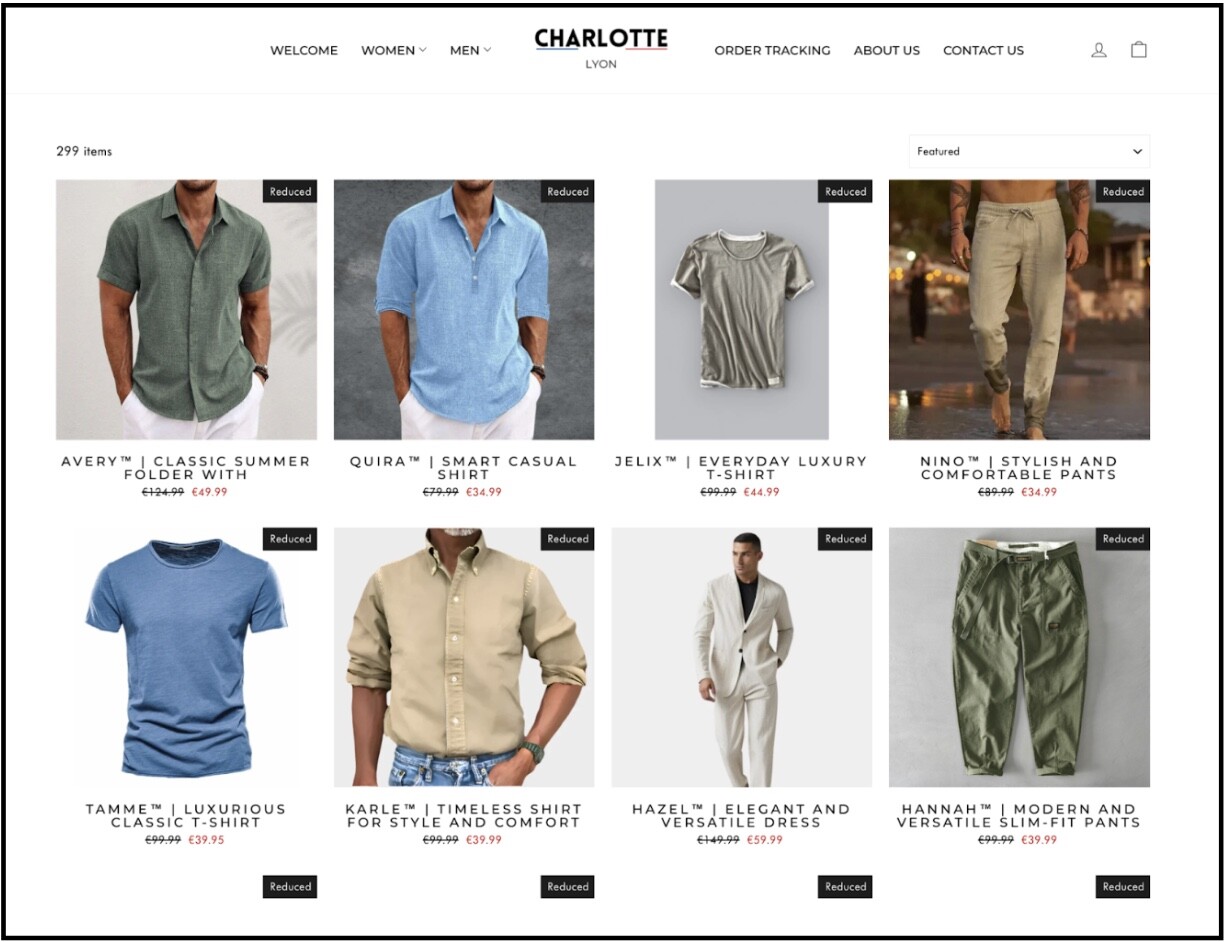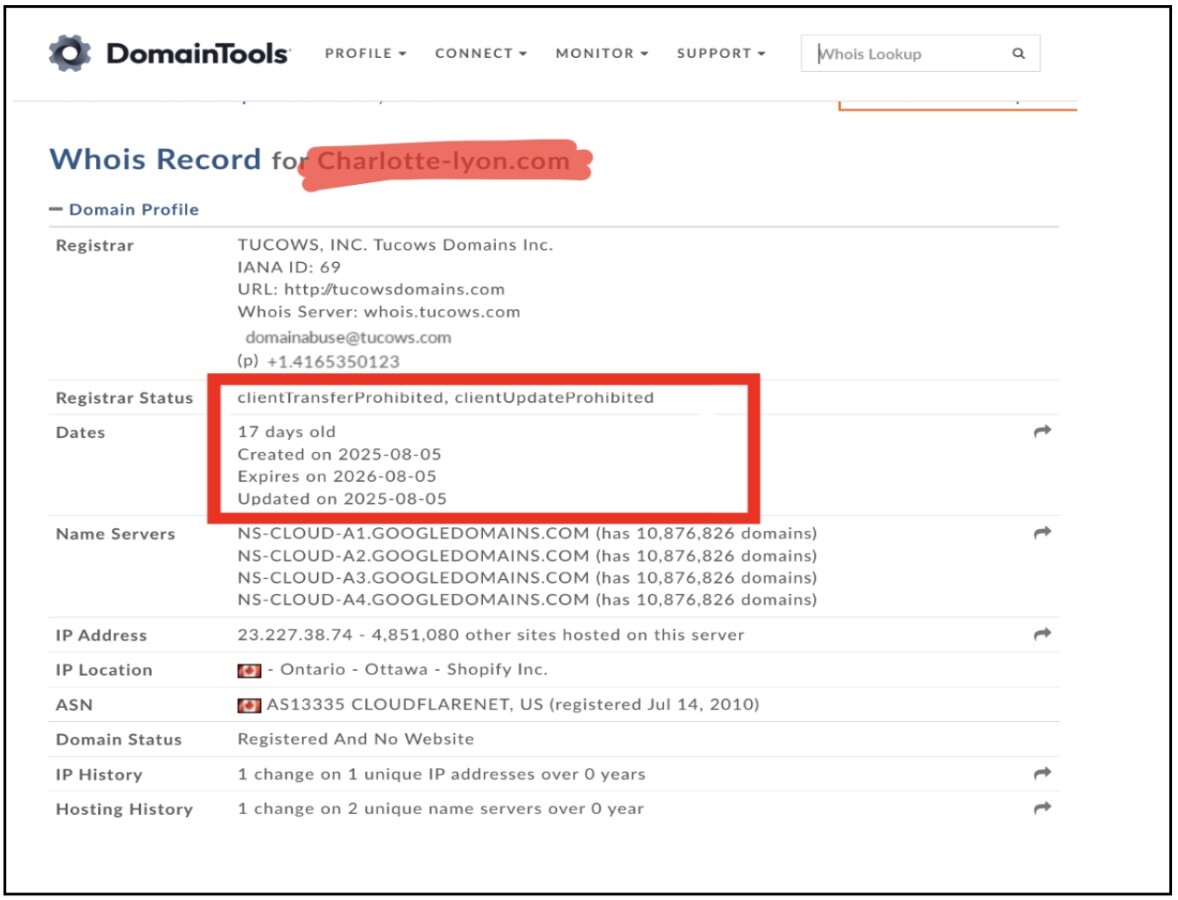The Price of Deception: Fake discounts, real harm for consumers and businesses


Introduction
For months, Charlotte Lyon’s homepage told the same story. A farewell message full of emotion alleged the end of a small Lyon boutique, while a countdown clock urged shoppers to buy before the doors closed forever.
The site claimed to support local artisans, presenting itself as a workshop built with passion and dedication. Many visitors believed it. They placed orders, thinking they were helping a Lyon business in its final days.
What arrived in their mailboxes told a different story: cheaply made clothes shipped from overseas platforms like Shein and Temu, resold at inflated prices under the guise of authenticity.
A Global Trust Problem in E-Commerce
Across today’s digital marketplace, more and more online stores turn out to be scams dressed as real businesses. They rank among the top three most damaging online scams worldwide, according to regulators like the FTC and NGO’s like Better Business Bureau. Each year, they drain billions from consumers who believe they are buying from real shops.
E-commerce fraud is projected to cost $48 billion in losses this year, and nearly half ofonline shoppers, 43%, say they have already fallen victim to it. Fraudsters are becoming more sophisticated, using AI tools, automated tactics, and emotional design tricks to push people into hasty decisions. What looks like a farewell sale or a local artisan workshop can, in reality, be nothing more than a digital façade built to exploit trust.
The Charlotte-Lyon Scam:
Charlotte Lyon’s homepage carried a story designed to pull at emotions. A farewell message spoke of passion, quality, and the “final days” of a Lyon boutique. A countdown clock pushed shoppers to act fast before the doors closed forever.
The site claimed to support local artisans and presented itself as an authentic French workshop. In reality, the products were anything but local. Dresses, jackets, and accessories were sourced from platforms like Shein, Temu, and AliExpress, bought cheaply and resold at inflated prices.
Key deceptive tactics included:
- Falsely presenting as a local Lyon clothing shop.
- Claiming an imminent permanent closure to create urgency.
- Advertising fake discounts tied to the closing.
Illustrated with the help of artificial intelligence, the products are sold at high prices for their quality. For example a dress costs 50 € on sale and a sweater 60 €: "I ordered 3 dresses from “Charlotte Lyon”, thinking I was supporting a small Lyon workshop that was closing, as their advertising suggests ( I am closing my small workshop that I built with passion…). However, after receiving it, I discovered that the company is based in China, and that returns must be sent abroad at my expense, which was not clearly mentioned before the purchase ," shares a buyer.

Enforcement Action: DGCCRF Blocks Site (Aug 8, 2025):
The deception worked for months until regulators stepped in. On August 8, the French consumer authority DGCCRF (Directorate General for Competition, Consumer Affairs and Fraud Control), ordered the closure of Charlotte-Lyon.fr after finding repeated false ‘closing at 11:59 p.m.’ claims and misleading sales tactics.
But the shutdown didn’t end the scheme. On the very same day, a new domain, Charlotte-Lyon.com, went live, carrying the same farewell sale message and 70% “final” discounts. A store that was supposedly “closing forever” simply reappeared under a different extension.

Beyond Charlotte: Shein fined €40M
Scams like Charlotte Lyon are not isolated. Even global giants face scrutiny for misleading practices. Earlier this year, France’s DGCCRF fined Shein €40 million for making deceptive environmental claims about its products.
The investigation highlighted fake discounts based on inflated “reference prices,” urgency triggers like flash sales and countdowns, and environmental claims that lacked supporting evidence. These weren’t occasional errors but repeated practices across thousands of listings.
This isn’t just about one retailer. The pricing tactics exposed in this case reflect a broader pattern across the industry, and regulators are starting to respond. For a full breakdown of the case, see our analysis here.
How to Spot and Avoid Fake E-Shops:
Scams like Charlotte-Lyon show how easy it is to get caught up in a polished story. But there are ways to protect yourself before clicking buy. While we believe the burden should not be on consumers’ shoulders to be extra careful online, and that companies should be held accountable, here are a few key checks to shop safely online:
- Check the URL carefully: Fake sites often use misspellings, extra characters, or unusual endings like .shop, .top, or .xyz.
- Verify the business: Look for reviews on trusted platforms. No reviews at all? That’s a red flag.
- Look for missing information: Legitimate shops list a physical address and customer service contact. If there’s no phone number or VAT/SIREN, be cautious.
- Beware of unrealistic discounts: If the “closing sale” offers seem too good to be true, they probably are.
- Be careful with ads: Instead of clicking a banner or sponsored ad, type the retailer’s official website directly.
- Use secure payment methods: Prefer credit cards, which often include buyer protection. Avoid bank transfers, crypto, or gift cards, common tools for scams.
And if you believe any digital content could be a dark pattern, or another type of digital violation, you can:
- report it to your consumer protection or privacy protection regulators
- submit it to Deceptive Design's Hall of Shame, created by Dr. Harry Brignull, or to Stanford’s Dark Pattern Tipline https://darkpatternstipline.org/
The Bigger Picture
Scams like Charlotte-Lyon and Shein are not isolated. Regulators worldwide are tightening rules on deceptive practices. In Europe, the Digital Services Act (DSA) and the Unfair Commercial Practices Directive (UCPD) both prohibit manipulative tactics such as fake discounts or false scarcity, and further to the EU’s Digital Fairness Fitness Check, the future Digital Fairness Act aims at filling any remaining gaps.France’s DGCCRF action is part of this broader shift.
The U.S. FTC treats these practices as violations of Section 5 of the FTC Act, and India’s CCPA has also flagged dark patterns as breaches of consumer protection law. In total, more than 140 digital regulations already apply globally. Penalties can reach 7–10% of annual turnover for companies that fail to comply.
Building Trust Online: How FairPatterns Helps
This isn’t just about one retailer. These tactics are everywhere in e-commerce. We’re here to support the people driving change, helping compliance teams audit, law firms build stronger cases, and regulators monitor markets effectively.
At Fairpatterns, we detect manipulative design patterns and replace them with compliant, user-friendly solutions
Our AI-powered tools:
- Finds and fixes dark patterns across any taxonomy and way more extensively than humans
- Replace them with tested, compliant designs in plain language
- Prevent future risks by supporting legal-safe design at the mockup stage
Want to future-proof your platform for fairness?
👉 Connect with us https://www.fairpatterns.com/contact-us
















































